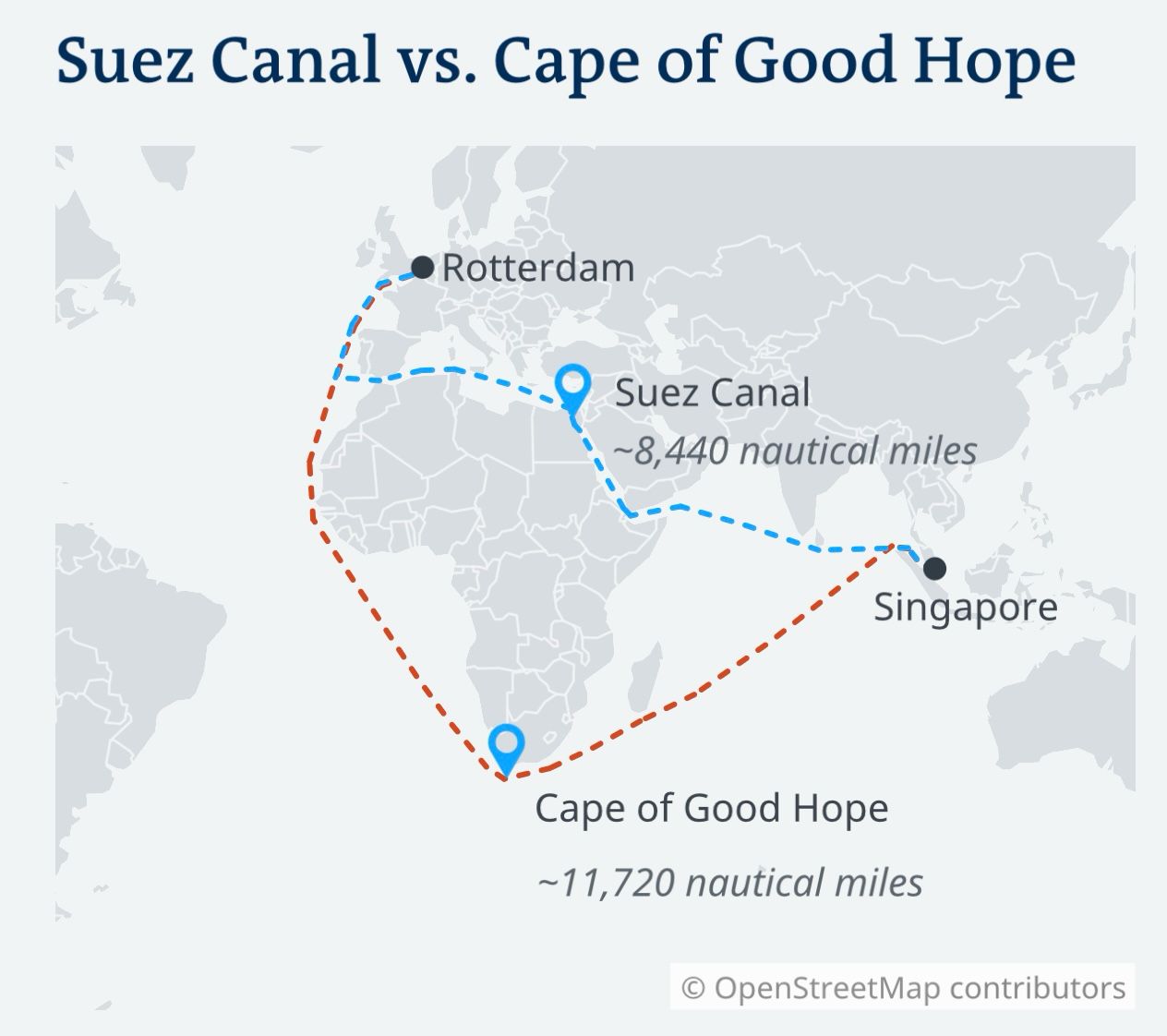Global shipping giants halt Red Sea-Suez Canal use over security threats

The Suez Canal, normally the shortest route between Europe and Asia, handles about 12 per cent of global shipping traffic.
In the past week, major global corporations announced their avoidance of the Red Sea and the Suez Canal due to Yemen-based Houthis firing missiles at cargo ships amid the Israel-Hamas conflict.
As a result, vessels travelling from the Far East to Europe will now navigate around the entire African continent via South Africa's Cape of Good Hope, extending the journey by over a week and adding around 6,482 kilometres (3,500 nautical miles).
More To Read
- Sudan puts Russian Red Sea naval base plans on hold to focus on domestic crisis
- Global power shifts are reshaping the Red Sea region and changing the rules of engagement
- EU and Africa launch regional maritime security plan to tackle piracy and trafficking
- Ethiopia’s Hayli Gubbi volcano spews ash across Red Sea into Yemen in historic eruption
- Seven Ethiopian migrants die of hunger and thirst after boat engine fails
- Eritrea, Egypt reject non-coastal states' role in Red Sea security
The Suez Canal, normally the shortest route between Europe and Asia, handles about 12 per cent of global shipping traffic.
Amid the Red Sea security threat, prices may double in the coming weeks, impacting global freight rates.
Despite the disruptions, the shipping industry, having learned from the post-COVID supply chain crisis, has expanded its cargo vessel fleet, mitigating potential long-term effects.
While shipping firms initially held vessels in a holding pattern, recent redirections around Africa suggest a diminishing belief that the crisis will be swiftly resolved.
Fortunately, the overcapacity of container vessels provides a buffer, easing the potential impact of prolonged Red Sea rerouting.
Yesterday, the United States unveiled a multinational initiative to protect maritime commerce in the Red Sea.
Under this effort, joint patrols in the southern Red Sea and the Gulf of Aden will be conducted by Britain, Bahrain, Canada, France, Italy, the Netherlands, Norway, Seychelles, and Spain.
Top Stories Today












































